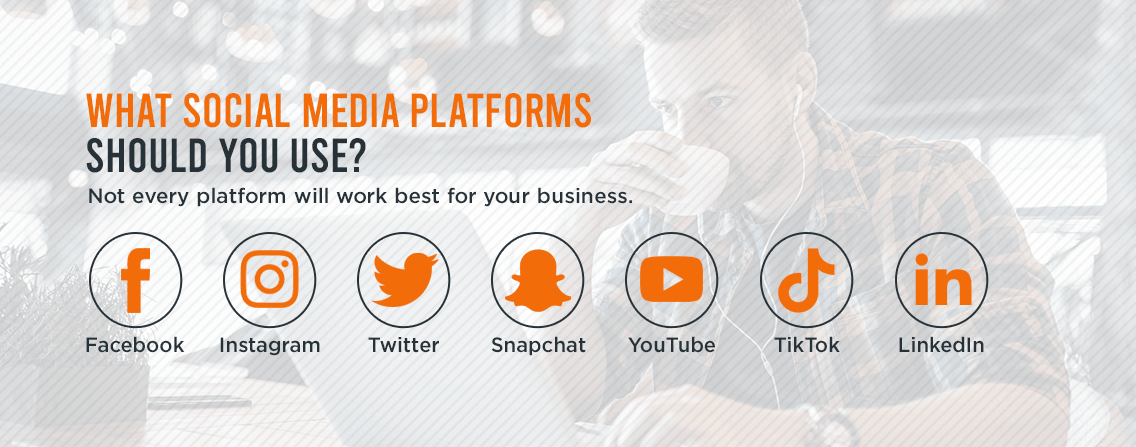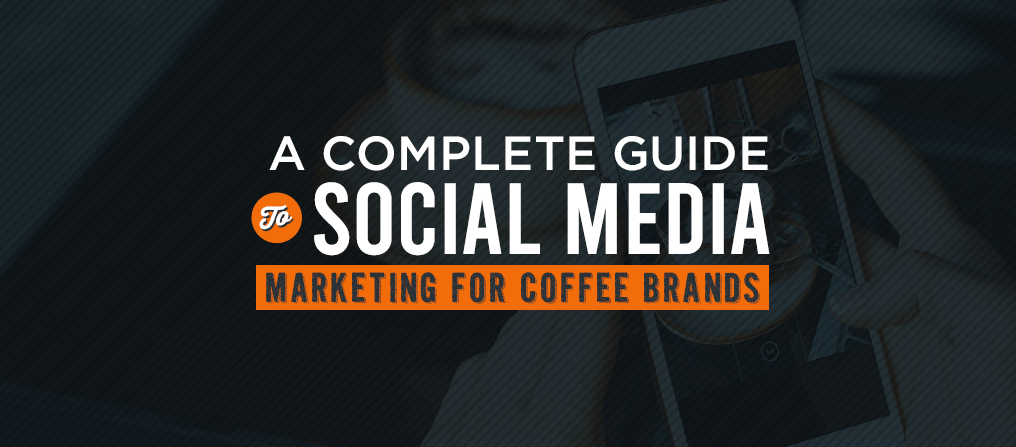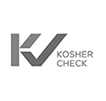Learn More About Launching Your Coffee Business
Using Social Media to Market Your Coffee Brand
When people think of professional coffee brands, they think of more than a rich, quality cup of coffee. They think of the traditional coffee shop aesthetic of warmth, camaraderie, and community. Even without the physical boundaries of a storefront, you can deliver a reputable customer experience by using social media marketing for your coffee brand.Why Do People Use Social Media?
To maximize your brand’s social media potential, you have to put yourself in the user’s perspective. Odds are, you’re active on social media, too. Take a step back from being a brand owner and consider ways you interact with other businesses online as a consumer. According to a social media behavior report conducted by market research company GlobalWebIndex, some top reasons people use social media is to:
According to a social media behavior report conducted by market research company GlobalWebIndex, some top reasons people use social media is to:
- Stay in touch with friends.
- Post photos and videos.
- Share their opinions.
- Meet new people.
- Research and find products to buy.
Learn More About Launching Your Coffee Business
What Social Media Platforms Should You Use?
Not every platform will work best for your business. Even if they did, we wouldn’t recommend using them all because there simply isn’t enough time in the day to make every platform’s profile amazing. Some of the most valuable social media platforms to consider for your brand are:
Some of the most valuable social media platforms to consider for your brand are:
- Snapchat
- YouTube
- TikTok
Learn More About Launching Your Coffee Business
The 5 Pillars of Social Media Marketing
 A competitive social media profile requires more than a profile picture and an occasional post. Social media marketing can be broken down into five pillars:
A competitive social media profile requires more than a profile picture and an occasional post. Social media marketing can be broken down into five pillars:
- Develop your strategy.
- Plan and publish content.
- Listen and engage with your community.
- Track analytics and reports.
- Consider advertising.
- Target audience. Who do you have in mind when creating your product? It’s helpful to create a buyer persona, a semi-fictional written description outlining your ideal customer. Describe their age, appearance, income, values, goals, lifestyle, personal background, and any other qualities you deem important.
- Brand identity. You’re a coffee brand, but what else? Describe what makes you different from your competitors. You might find it useful to visualize your brand as a single identity or person and follow similar steps outlined for creating a buyer persona.
1. Develop Your Strategy
Envision how you want your brand to grow. As you start brainstorming, don’t restrict yourself based on budget or timeline. Ask yourself what your goals are and build from there. With a rough sketch of your goals, weed out any that are simply unachievable and narrow down your list to better focus your attention. Your objectives may look something like:- Increase brand awareness.
- Earn quality followers.
- Boost website traffic.
- Grow revenue.
- Earn a follower count of 100 people in one month.
- Gain 100 Likes, 10 comments, and 10 shares per post.
- Generate 4% of website traffic from social media posts.
- Have five people follow through on a call to action (CTA) per post.
2. Plan and Publish Content
Keeping your chosen social media platforms in mind, post content that aligns with your brand’s identity and delivers a quality customer experience your audience will want to engage with. Content refers to any media you use to communicate a message to your audience. Examples of common types of social media content are:- Written posts
- Links to other content
- Images
- Videos
- Infographics
- Testimonials
- Podcasts
- Livestreams
- Webinars
- Relevancy. Make sure the content you’re posting is meaningful to you and your audience. You’re a coffee brand. It might not make sense to post sports updates on your Facebook timeline unless you happen to be a sports-themed coffee brand.
- Consistency. If you only post once or twice per month, your audience will likely not feel inclined to frequent your social media platform. You should post content with a strategized timeline and frequency to maximize its effectiveness.
- Collaborative. Social media marketing is a collaborative effort. Find a scheduling and publishing platform that allows different team members to access it from their respective devices at any time. They should also be able to communicate directly with one another.
- Insight-driven. Analytics, which we’ll explain more in the fourth pillar, help you track your KPIs and tell you how effective your posts are. Having built-in analytics ensures your KPIs are accurate and relevant to your goals.
- Customizable. Choose a platform that allows you to tailor visuals, analytics, and interfaces to your coffee brand’s unique goals. Filtering out the clutter will help you focus specifically on your growth and enhance your brand identity.
- Easy to use. You don’t want to waste time navigating complex interfaces and deciphering intricate analytics. You want a platform with visuals, simple navigation, and easy-to-read tools and text.
3. Listen and Engage with Your Community
The point of your coffee brand’s social media posts is to create a sense of community between your brand and audience. If you talk to someone and they don’t listen to what you have to say, or they ramble about what makes them great, you likely won’t have the best impression of their character. The same rules apply to your brand on social media. To build a positive reputation, talk to your audience and actively listen to what they have to say. Posting content is the opening line for a conversation. To keep your audience engaged with your content, you should:- Ask questions.
- Ask for feedback.
- Have a clear CTA.
- Tune in to your brand personality.
- Respond to comments and messages.
4. Track Analytics and Reports
How will you know your social media marketing efforts and strategies are working? Short and simple — by tracking your analytics. The world of analytics can be as simple or as complex as you make it. Choose a reliable analytical tool and customize reports to track the most relevant and accurate data for your brand. Your target analytics largely depend on your goals — deciding which ones you want to track will be up to you. We can tell you, though, some types of metrics you’ll want to look at:- Awareness
- Engagement
- Return on investment (ROI)
- Social team performance
- Share of voice
5. Consider Advertising
Something you’ll notice as you familiarize yourself with social media networks is their options for in-platform advertising. You don’t have to spend the additional money on advertising — as your content will likely generate organic traffic and revenue — but if you have the funds, then do it. Your options for paid advertising aren’t limited to specific platforms, but social media networks are more willing to advertise your brand on their website than third party campaigns. Facebook, Instagram, Twitter, Snapchat, LinkedIn, and YouTube all offer built-in paid advertisement options. To make your coffee brand more profitable, you might consider advertising content like:- Photos
- Videos
- Stories
- Messengers
- Carousels
- Collections
- Sponsorships
- Text
Learn More About Launching Your Coffee Business
5 Tips for Avoiding Common Social Media Mistakes
Learning the best ways to use social media requires some trial and error. Luckily, other companies have already learned the hard way, and the best thing you can do is learn from their mistakes:- Use original visuals. Sharing existing content is great, especially when promoting other brands or sharing useful information your audience might enjoy, but it shouldn’t be the only content you post. Add something original and exciting to the mix instead of recycling what’s already available.
- Use diverse images. Keep your timeline refreshing by posting different types of content. Your audience will get bored with routine postings of strictly video or photographs. Spice your content mixture up by also publishing infographics, podcasts, testimonials, or whatever else your audience might enjoy.
- Optimize posts based on the platform. The content you post on YouTube may not work on Twitter, and vice versa. Avoid comparing apples to oranges, and strategize your social media marketing efforts based on the individual network.
- Complete your profile early on. Networks provide the framework for you to optimize your social media performance. Take advantage of this framework by fully completing your profile, including headers, profile pictures, descriptions and biographies, connections, contact information, internal linking, and more.
- Avoid being overly promotional. People know when they’re being marketed to. Use social media to promote your brand organically, and view it as a way to bring your brand personality to life. If your content is strong enough, it will promote itself.
Learn More About Launching Your Coffee Business
Thirsty for More? Read Our Blog for More Marketing Tips
 Our experts at Joe’s Garage Coffee can provide you with much more than just custom coffee. We’ve spent more than 20 years working with large and growing coffee brands, helping them transform their businesses and increase their audiences using our strategized marketing techniques.
We know the value of your coffee brand, and other people should, too. Check out our blog for experienced marketing tips on how to grow your coffee brand, from how to post the right social media content to how to sell coffee as a fundraiser.
When you’re ready, contact our outstanding customer service team, and we’ll create a program to help you achieve your coffee and social media goals. Or, speak directly to one of our friendly coffee experts by giving us a call today.
Our experts at Joe’s Garage Coffee can provide you with much more than just custom coffee. We’ve spent more than 20 years working with large and growing coffee brands, helping them transform their businesses and increase their audiences using our strategized marketing techniques.
We know the value of your coffee brand, and other people should, too. Check out our blog for experienced marketing tips on how to grow your coffee brand, from how to post the right social media content to how to sell coffee as a fundraiser.
When you’re ready, contact our outstanding customer service team, and we’ll create a program to help you achieve your coffee and social media goals. Or, speak directly to one of our friendly coffee experts by giving us a call today.
Learn More About Launching Your Coffee Business









